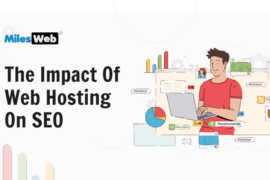Your new website may be the most important sales and marketing tool for your new business. We guide you through the Top 10 most important details to include. Enhance your marketing message & user experience with these tips improving your web design in 2020! Is your business striving, but your website struggling? These web design tips will take you from amateur to professional website in no-time
5 ★ Rating Best Search Result
If you’re building a new website, it’s important not to overlook these details
Your new website is your salesman that never sleeps, doing new business for you 24/7. It makes sense to ensure that it’s the best it can be. How you and your new business achieve that is a combination of graphics and words, ease of navigation, power performance speed and so on.

However, there are some basics rule that every new website must have to be successful and we are here all time to help steer you on the right path.
For example, should you ever found the need to accept credit card payments online then the card processing online service will inspect your new website. It must have a bare minimum of Terms & Conditions of doing new business with you, your shipping and returns policy, your legal contact details as well as all important things like a Privacy Policy and GDPR compliance statement.
Always display a copyright notice too, no matter what your new website does: ‘Copyright © 2020. mynew website.com’
So let’s jump straight in and explain what the Top 10 Must-Haves are for a new business new website.
Privacy policy and GDPR details
A privacy policy concern tells visitors how you handle data collected about them and how delicately you protect it. That is very important concern these days. Data can be includes anonymous browsing data such as cookies. Also, what you do with any personally identifying information visitors submit, such as , email ,name , street address, and phone number.
Usage includes marketing analysis services your new website may use. The policy should be GDPR-compliant and also meet the California Online Privacy Protection Act if applicable.
It’s tempting to take some standard website templates or boilerplate content for your privacy policy. The thing is, your new website’s privacy policy is a contract with visitors to your site who interact with it. Every new business is different, which means it almost certainly needs bespoke policies. The only sure way to get it right is to engage make professional legal services.
About Us page
You generally like to know about that website from whom you are buying, don’t you? We tend not to buy from people we don’t trust. That’s why your About Us page is one of the most important pages on your new website.
Its aim is to reassure prospective new customers and establish your credentials as a reputable and trustworthy vendor. You can do that by telling the all story of your new business, highlighting your experience and including short bios of key team members along with photos.
Spend time on it. Look at some of the good examples from other new websites. It’s worth engaging a professional writer to craft the right words to get your image across in the best way possible.
Terms and Conditions
While your company Privacy Policy may be a legal requirement, T&Cs strictly speaking are not. Don’t be tempted to skip them though because they are your first line of defense when issues arise.
They serve several purposes of your business but the most important is limiting your legal liability of a company and should state the jurisdiction (country, state or province) under whose laws you operate.
Most visitors will never read them but they give visitors a feeling of reassurance and safety, which are important positives in converting them to paying customers.
You can use online T&C generators pop up as well if your new website is simply a marketing tool. If you are actually selling products or services then the best thing to do is hire legal advice. It’s only when there is somebody takes legal action against your new business that you will realize how important robust and relevant T&Cs are.
New website uptime monitoring
If your new website is your tireless 24/7 salesman, then you need to know that it’s working, or rather when it’s not working. Downtime means lost revenues.
Availability 24*7 monitoring is provided by an external service and can work at many levels depending on what you need and how much you are prepared to pay. The most basic alert tells you when a web page (usually your home page) cannot be accessed.
Monitoring can check your website pattern a whole range of performance aspects and provide useful analytics. Factors such as page load speed, email system, transaction processing and many more.
Accessibility
Hundreds of millions of people suffer from disabilities that make it difficult to access your new website. Even just growing older often means it gets harder to read some fonts.
Accessibility of a website also includes things like catering for small screen devices, Visitor digital devices with alternative input methods, and even slow internet connections.
It only takes a proper planning at the time of website design and coding stage to incorporate the basics that make access far easier. Then people with disabilities (unsupported device) can use special tools and plugins.
A little forethought can convert what would be disappointed visitors into customers for life. Find out more about accessibility at the World Wide Web Consortium (W3C).
Tests for all links, forms and payment systems
Important Functional testing is always critical because defects can mean lost revenues and your visitors who will never return. It’s best to adopt a methodical approach and actually write down every link and form that needs proper testing, screen by screen, and what the expected outcomes are.
That also makes it easy and more efficient to carry out regression tests after changes have been made. It’s also a good idea when testing mode is on you can ask to somebody unfamiliar with your new website to carry out these tests. Fresh eyes may spot errors that you might have glossed over.
Sure it may be tedious and repetitive, but it’s like checking a boat for leaks. It’s vital.
Licensing for any third-party software
There is an abundance of most useful third-party applications and systems that you can integrate into your new website. Anything from tracking website visitor activity on a web page to full-blown e-commerce services is achievable with these add-ons. Many are free but, unsurprisingly, you pay for what you get.
Be sure to make any script usage legal by installing only correctly licensed software, whether or not you have to pay for it. The last thing you want is for a critical component of your sales mechanism to fail because a licensing issue has stopped it from operating.
Licensing for any photos, imagery or video
How would you feel like it if somebody “stole” one of your images and used it on their new website as though it were their own? Not good, so don’t ever do it. You could even be on the receiving end of a Desist And Cease letter from a lawyer.
It’s not easy or not so difficult to obtain completely legal images, many of them images are totally free of charge or royalties. Images issued under the Creative Commons License usually require only attribution of the real author and sometimes not even that. Many image repository free sites permit free download and usage of a vast range of royalty-free images with not even attribution required.
The golden rule is not to simply take any old image you find online, no matter how appealing or relevant it may seem. At least find the owner and request permission first.
Clear return/refund and shipping policies
These — or the lack of them — can make or break a potential sale. Customers frequently seek out this information so make sure it is easily and clearly available. Avoid bundling it in with the Terms and Conditions. Be sure to publish your physical address too to reassure customers.
Shipping: Locations you do NOT ship to, how quickly goods will be dispatched, what carrier and at what cost; these are the most common questions customers will have.
Returns: What conditions must be met and what the process is, the return address, contact details for returns, who pays return shipping costs; they are the bare minimum you need to be clear about.
Refunds: Whether special “sale” items are refundable, if a receipt or packing slip is needed, whether shipping and transport services costs are refunded too are just some of the topics you should clarify.
All legal and contact details
Just as with the website About Us page, clear and accessible contact details lend credibility to your new business. Visitors want to know how they can contact you and where you are located. In Germany it’s called Impressum and is a legal requirement that goes back to the days when flyers were handed out. The authorities needed to know who published them and where to contact or locate the promoters.
It’s just pure common sense to make these details easy to find. You should also include links to any social media accounts for your new business. At a minimum, include a contact form and street mailing address where legal papers can be served. Better still, think about it from the point of view of potential customers and what might sway them in favor of buying your proposition.
Legally required details in many jurisdictions include company registered number, name of legal entity (not just a trading name) and tax/VAT number.
Some of popular user define Favorite Web Design Tips?
- Invest in fast pageloading speed.
- Use the fold to hook visitors in.
- Reduce choices to improve conversions.
- Simplify where you can.
- Avoid using carousels, sliders, tabs and accordions.
- Prioritize scrolling over clicks.
- Direct attention via visual cues
You may also like this:- best writing app



